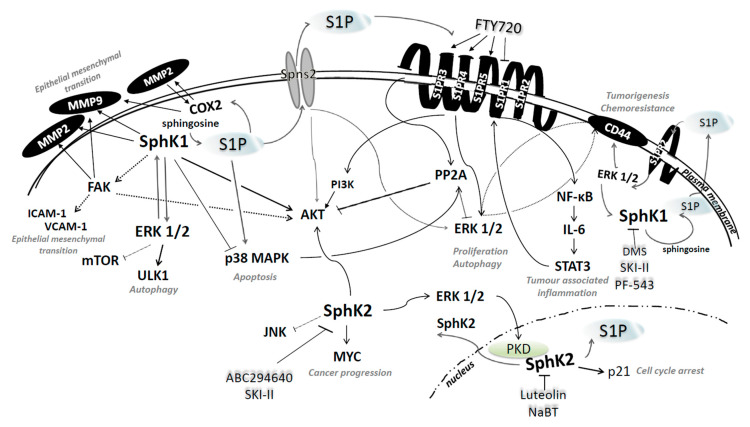Figure 4.
Sphingosine kinase/S1P signaling in the regulation of colon cancer cell behavior and fate and the corresponding pharmacological inhibitors. Findings from the available literature reveal a crosstalk between S1P metabolism and cellular networks that regulate colon cancer cell growth and survival. Sphingosine kinase 1 (SphK1) regulates the expression and activity of important players in colon cancer cell survival and metastatic progression. In response to various growth factors, activated ERK1/2 induces SphK1 activity to further stimulate pro-survival signals via activation of AKT and promote EMT through the activation of FAK and COX2 that converge on MMP2/9. SphK1-generated S1P can stimulate either receptor-dependent or independent signaling. S1P transported to the extracellular space by specific transporter proteins binds to and activates G protein-coupled receptors (S1PR1-3) in the plasma membrane to promote cancer cell survival and inflammation via downstream signaling resulting in the activation of PI3K/AKT, ERK1/2 and NF-κB/IL-6/STAT3. SphK1/S1P axis also interacts with CD44/ERK1/2 signaling through S1PR2 receptor. Sphingosine kinase 2 (SphK2)- produced S1P in the nucleus binds to histone deacetylases (HDAC1 and 2), inhibits their activity and induces p21 gene transcription. Increased ERK1/2 activation could also potentiate protein kinase D (PKD) activity to facilitate activation and transport of SphK2 to the cytoplasm, where it can promote cancer progression via interaction with MYC and inhibition of pro-apoptotic JNK signaling.

